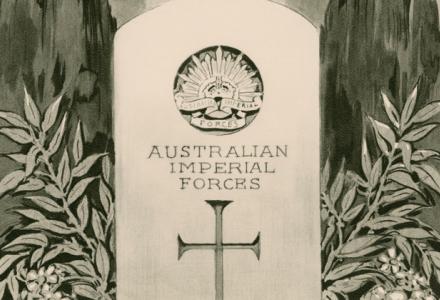By 1916, New Zealand’s voluntary recruitment was failing. Despite massive opposition, a conscription bill was pushed through parliament. Unlike Australia, there was no chance to vote ‘No’ in a referendum. New Zealand’s Conscription Act allowed for few exemptions. A Christian socialist who attributed the war to greed and empires, Archibald Baxter’s opposition was deemed ‘political’ and he was sent to prison. So too were 272 others.
In late 1916 Baxter was transferred to an army camp near Wellington. Refusing to work, or to wear army denims, he was sentenced to solitary confinement and allowed only bread and water. He then faced a court martial and a further eighty-four days’ hard labour. Baxter remained defiant, despite yet another sentence of forced detention in the barracks. That principled intransigence—and the overcrowding problem posed by so many dissenting men—convinced the camp commandant to send some of ‘the conscies’ overseas. There the British Army would no doubt know how to deal with them.
Fourteen dissenters were spirited onto the troopship Waitemata, arriving in Plymouth on Boxing Day 1916. For a time, Baxter and the ship’s detainees were confined to freezing prison cells in Britain. Then Baxter was shipped across the Channel to France. And the closer he came to the fighting, the more brutal his treatment became.
And all the time the threat of execution hung over Archibald Baxter. Five New Zealanders were executed during the war for ‘cowardice’, desertion, and simply being unwilling or unable to fight. Baxter never signed the enlistment papers thrust before him; he never admitted that the Army had any legitimate authority over him. Had he done so he may well have been tied to a post and shot.
In the end it was simpler to declare him insane. In mid-1918 Baxter was transferred from Boulogne and admitted to a mental hospital in England. Another doctor diagnosed extreme ‘melancholia’ that would lead eventually to a discharge on medical grounds. But Archibald Baxter had not forgotten his principles, refusing to obey orders or shoulder a rifle to the end. Nor was he ever indifferent to the human cost of war.



